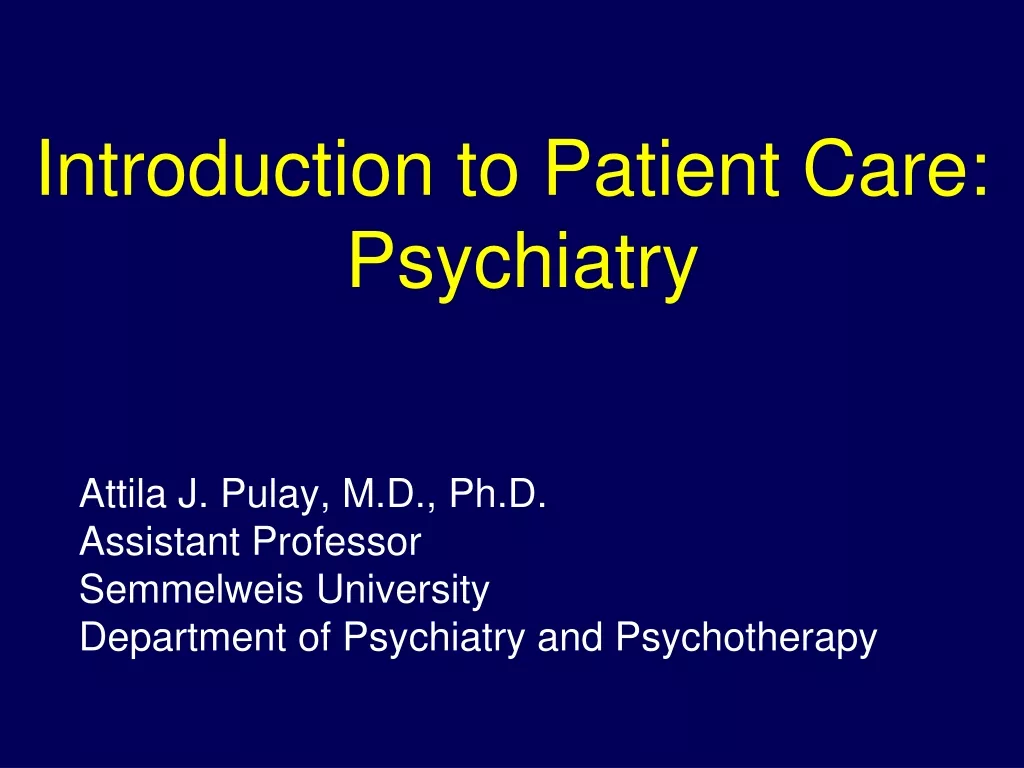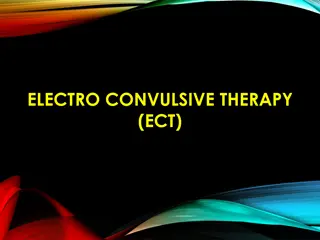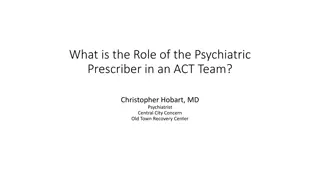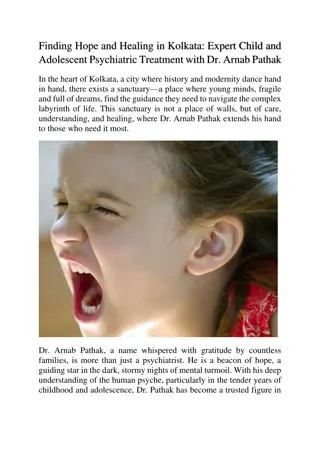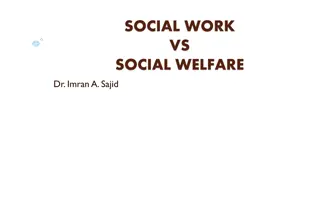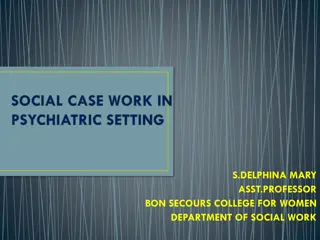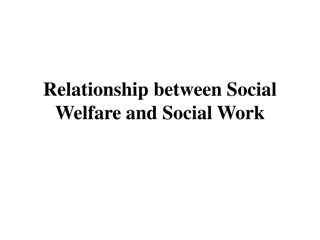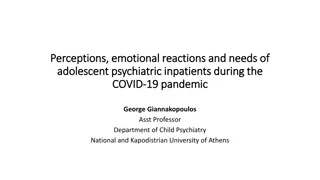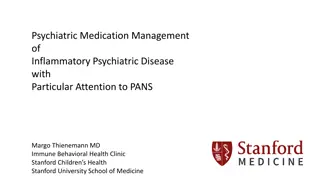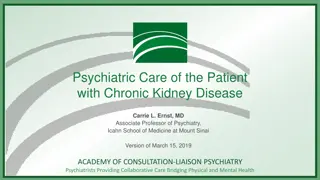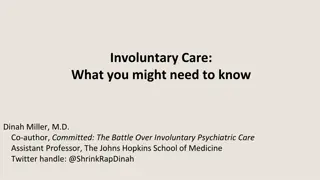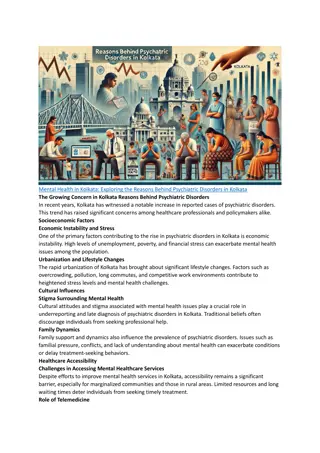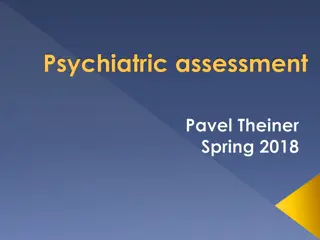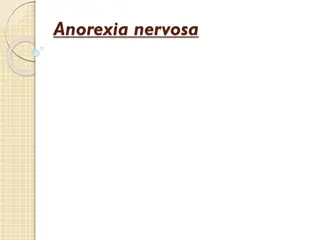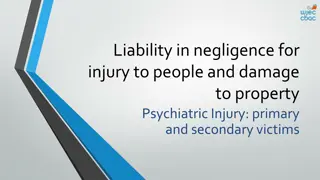Evolution of Psychiatric Social Work: History and Impact
Psychiatric social work is a specialized field that integrates social work principles with psychiatry to address emotional and mental health disorders. Originating in the early 1900s, it has evolved to provide crucial support to individuals struggling with mental health challenges, facilitating their integration into society. Key figures such as Garnet I. Pelton and Ida Cannon played instrumental roles in shaping the field, emphasizing the importance of social and psychological aspects of disease in patient care.
Download Presentation

Please find below an Image/Link to download the presentation.
The content on the website is provided AS IS for your information and personal use only. It may not be sold, licensed, or shared on other websites without obtaining consent from the author. Download presentation by click this link. If you encounter any issues during the download, it is possible that the publisher has removed the file from their server.
E N D
Presentation Transcript
Psychiatric social work has been defined as social work practiced in relation to psychiatry. It indicates the use of social work knowledge, skills and methods in the practice of psychiatry which, in turn, has enriched the field of social work implications of personal and social problems. by throwing light on psychiatric
In psychiatric social work, social case work and psychiatric purpose disturbances. It also helps those patients who, due to emotional disturbances, feel difficulty in adjustment within the society. Thus psychiatric social work is oriented towards the welfare of patients suffering from emotional or mental disorders. services treating are combined mental for the of or emotional
A qualified person who works with mentally disordered people and their families, based in a psychiatric hospital, child guidance clinic, or social services department area team, and who may also be an approved social worker.
Began in hospital setting in 1905 nurse Garnet I. Pelton appointed by physician Richard Cabot at Boston General Hospital in Internal Medicine Clinic 1907 Social Workers placed in Neurology clinic of MGH said to be the beginning of psychiatric Social work No distinction between MSW and PSW
Ida Cannon succeeded Garnet I. Pelton said practice from Dr s office to home visits diagnosis and treatment. Speech by Cabot Hospital and Dispensary Social Work in international conference of Social Work at Paris in 1928 agreed that primary function of Social Worker s is to teach Dr s and nurses about the social & psychological aspects of disease.
cannon spoke about the direct treatment role of Social Work in health care, i.e, removing problems in patients surroundings for successful treatment Cabot spoke about Social Worker s a bridge, i.e, liaison between hospital and patients.
Both MSW and PSW same before 1920 Separation because of Freudian Psychoanalytic concept around 1920 Separation increased by Mental Hygiene Movement after I world war soldiers suffered from Shell(Bomb) Shock (now PTSD)
Abraham Flexnor stated SW as not a profession Training school for PSW in Smith College 1918. Section on PSW organized with AAHSW 1922 (American Association of Hospital SW) After I and II World War Veterans (experts) Administration (VA) hospitals employed both MSW and PSW
General knowledge of normal and abnormal human development and behavior. General knowledge of recognized treatment interventions such as behavior modification; family, psychotherapies; substance abuse interventions. group, and individual education; psychosexual
Skill therapeutic patients. Skill in communicating with patients and families who may be experiencing distress. Skill in conducting and teaching individual, family, and group therapies. Skill regarding various aspects of mental illness. in developing relationship and maintaining with a mentally ill in patient and family education
Skill in interviewing to gather data needed to diagnose the needs of individuals and their families. Skill in preparing clear, concise written case narratives and reports. Skill in functioning as patient advocate to ensure that appropriate social services are being delivered which could include working with community coordination of services. State and organizations Federal agencies for and the
Ability to work with resistive, acutely, and chronically mentally ill; character disordered; and substance abusing patients. Ability to understand and reduce the effects of institutionalization on patients. Ability relationships paraprofessional institution staff and public and private sector professional staff. to maintain with effective professional working both and
Ability to understand organizational systems and how to work within them for the benefit of the patient. Ability dangerousness of patients. Ability working relationships with representatives of a wide variety of community agencies. Ability to work as a member of a treatment team. to assess (evaluate) the level of to build and maintain effective
Scope is wider and broader PSWers can work as Case Managers Researchers Rehabilitators Work in acute psychiatric hospitals In mental health In community mental health In multidisciplinary team

 undefined
undefined


